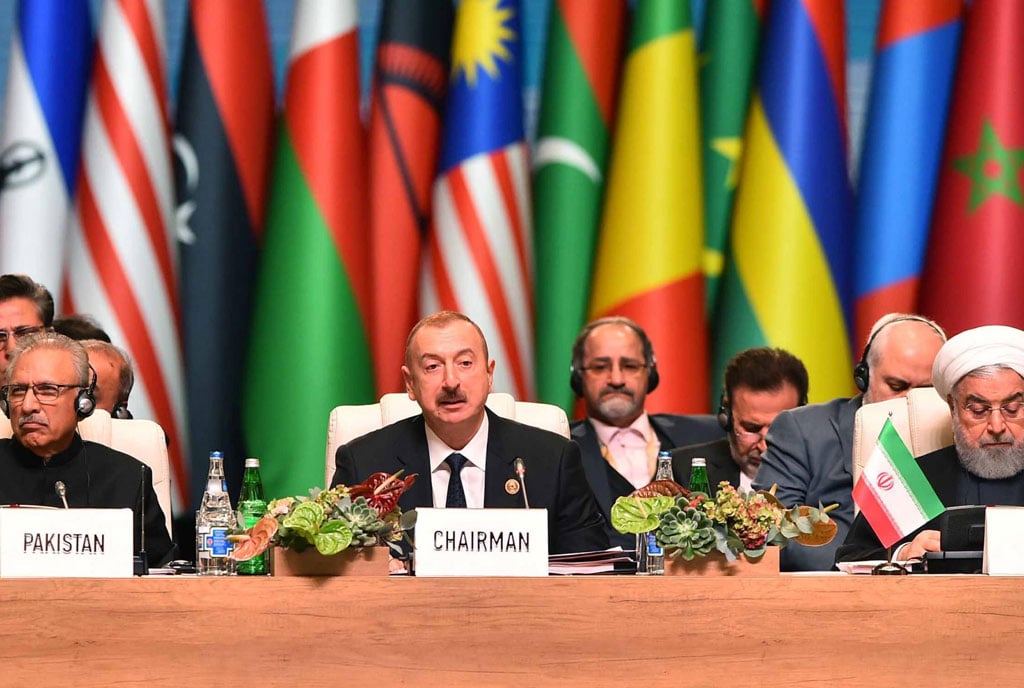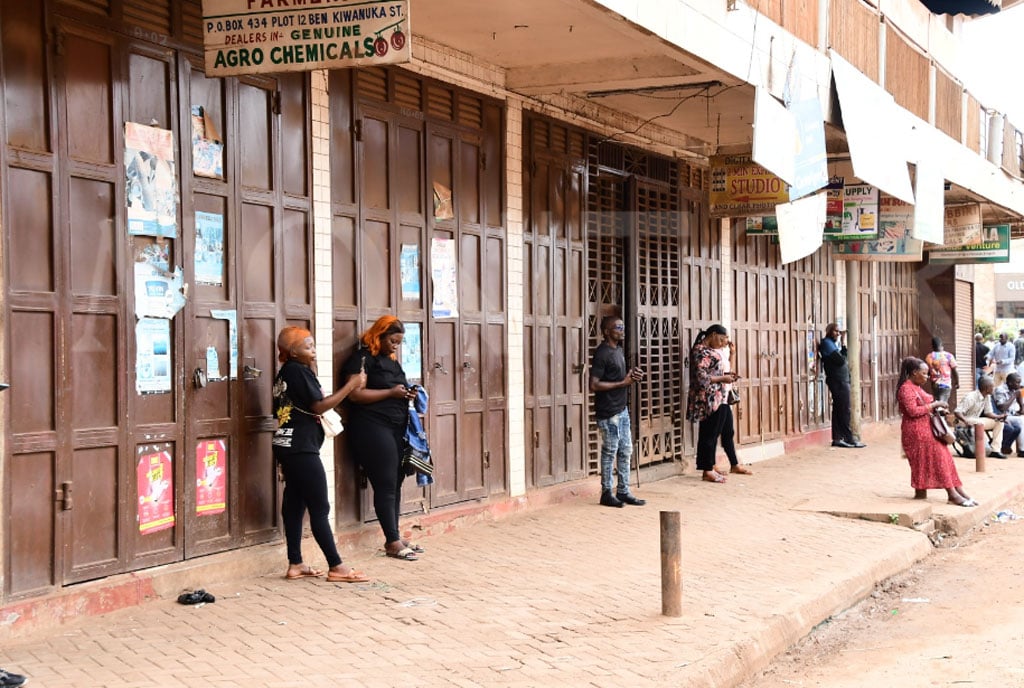Prime
Fight erupts ahead of G77, NAM summits

Prime Minister Robinah Nabbanja, businessman Sudhir Ruparelia and Finance Minister Matia Kasaija tour Munyonyo Commonwealth Resort in February last year. Uganda will host two summits, the Non-Alignment Movement (NAM) and G77+China summit in January. Photo | Courtesy
What you need to know:
- Officials in Kampala told the Monitor that more than 100 international delegates are expected to participate in the summit.
Officials charged with the preparations of two major summits scheduled for January are bickering over resources, roles and other issues as the government races against time on preparations to host the world’s developing countries in Kampala.
This publication has learnt that some officials are now sulking over allowances, while teams charged with preparation tasks are finger-pointing each other amid concerns that the venue is behind schedule.
The two summits, the Non-Alignment Movement (NAM)—a gathering of 120 countries seeking nonalignment with the world’s super powers—will run from January 15 to 19, while the G77+China summit will run from January 21-23 at Speke Resort and Convention Centre in Munyonyo.
Uganda, as the host country, will also be assuming the rotational chairmanship of the summits; three years for NAM from Azerbaijan, and one year for the G77+China from Cuba, which held its summit last month attended by Vice President Jessica Alupo and Foreign Affairs Minister, Jeje Odongo.
Established 59 years ago with initial membership of 77 countries, the G77 has since grown to 134 countries becoming the largest inter-governmental organisation of the UN with the mission to promote members’ collective economic interests. China, the world’s second largest economy, is not fully a member of the forum but maintains observer status and attends annual meetings hence tag ‘G77+China.’
The last summit in Havana, Cuba held under the theme: “the theme “Current Development Challenges: Role of Science, Technology and Innovation” attracted some 30 heads of state and government from Latin America, Africa and Asia. The UN Secretary General António Guterres also attended.
Uganda was endorsed as the host for both summits in 2019; the G77+China by the African Union (AU), and NAM by the Africa Group of Ambassadors in New York. As a recognised non-governmental organisation, G77 maintains a secretariat at the UN while NAM is steered out of the embassy of the chairing country.
Hosting the summits was deferred indeterminately after the Covid-19 pandemic hit, and the government only woke up early this year—to avoid previous embarrassments of hosting foreign dignitaries in tents erected by the Lake Victoria shore in Munyonyo—to plan for a modern convention center, the midwifed as joint venture between Uganda Development Corporation (UDC) and businessman Sudhir Ruparelia.
The initial organising committee in the Office of Prime Minister had budgeted for Shs100b as the cost of pulling off the two summits. The budget was eventually reduced to less than Shs53b, and with the cash-strapped Treasury continually tight marking every penny released.

Head of Public Service and Secretary to Cabinet Lucy Nakyobe was named the chief executive officer of the Non-Alignment Movement (NAM) committe in February. PHOTO | FILE
This, multiple sources told the Monitor, has angered several officials across the various government agencies charged with the various activities related to the summit. The National Organising Committee (NOC) led by the Head of Public Service, Ms Lucy Nakyobe, constituted several sub committees to take charge of related activities from communication, security, protocol, and transport, among others.
Barely three months to the summits there is hardly any buzz around the two key summits in Kampala. Some officials in Kampala equated their additional assignments as “unpaid work.”
With more than 100 international delegates expected to participate in the summit, there is hardly any information sent out to private sector players especially in tourism on how to tap into available opportunities.
“They told the President that we just want to eat money. The impression that was given is that we are greedy and can even work for free. Eyes open wide,” one senior ranking official told the Monitor in the US capital, Washington DC, a fortnight ago.
“Everyone has been told to stay in their lane. So, we are also looking [on],” another official chimed.
With the country planning to host more than a dozen heads of state and governments, there is hardly any mention of hiring and training protocol officers, a role assigned to the Ministry of Foreign Affairs. Security dry runs at Entebbe International Airport are yet to commence besides the elephant in the room—completion of the Speke Resort Convention Centre expected by the end of next month, tentatively.
On course
“There is a lot of work behind the scenes and soon we’ll be going public when we have what to show. You’ll see a lot of things in November and December,” defended the deputy chair of the NOC, Ambassador Adonia Ayebare, Uganda’s Permanent Representative to the UN in New York.
“Things are well organised. Budgets are tightly controlled, and completion of the venue is on track. We have sub-committees that are in charge of various activities, and all monies will be spent on key activities,” Ambassador Ayebare said in an interview at Uganda’s UN Mission in New York last weekend.
In the Ministry of Foreign Affairs under whose docket organisation of the summit falls, according to insiders, several technocrats are “mentally and physically” detached from activities of the summit. Two senior officials in the ministry justified their actions saying “the NOC is there, what do you want us to do more?”
The intended benefits from the two key summits include mainly showcasing the country’s diplomatic prowess on the international area. The country has previously hosted the Commonwealth Heads of Government Meeting (CHOGM) in 2007 and ten years later, the Refugee Solidarity Summit.
Uganda’s UN Mission, the coordinator of the two summits, sent out invites to all member countries in July this year. And with the country hoping that as many heads of state and government attend in person, it was widely expected that President Museveni would attend the just concluded United Nations General Assembly (UNGA) in New York to rally for support. He didn’t. Vice President Jessica Alupo represented.
Asked whether President Museveni’s now show at this year’s UNGA will affect attendance for the back-to-back summits, Ambassador Ayebare said Ms Alupo did commendably well and also met several heads of state on the sidelines of UNGA whom she briefed about the summits.
“Of course, personally I would have loved him (the President) to be here,” Ambassador Ayebare said in response to our query, adding: “Nonetheless he was well represented by the Vice President and the main priority was to invite as many countries as possible. But You are right in a way that his presence would have been a good opportunity.”
Ambassador Ayebare said while invitations were sent out to heads of state of all NAM/G77 member countries, they expect the respective delegations to be led by the different groups from Presidents, Foreign Affairs Ministers, Ambassadors, among others.
The Ugandan presidency of the G77+China will mainly focus on the UN’s new “Summit of the Future” agenda which will build upon the Sustainable Development Goals (SDGS)— collection of 17 interlinked objectives designed to serve as a “shared blueprint for peace and prosperity for the people and the planet— and breathe new life into the multilateral system that is currently under immense pressure since Russia’s invasion of Ukraine in February 2021, and Israel’s onslaught against Gaza and neighbouring countries.
Through the G77 forum, developing countries have equally consistently sought to foster South-South cooperation, a term used to describe the exchange of resources, knowledge, and technology between developing countries. The third South to South summit will be held on the sides of the G77 summit as a follow up to the second and first summits held in Qatar and Cuba, respectively, more than a decade ago.




